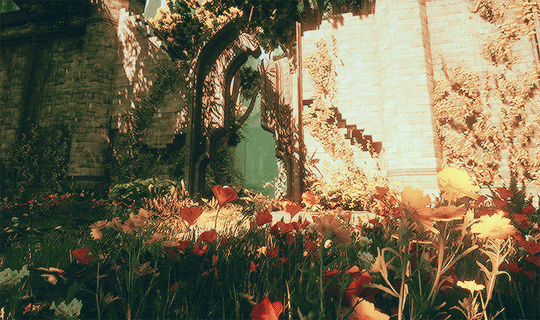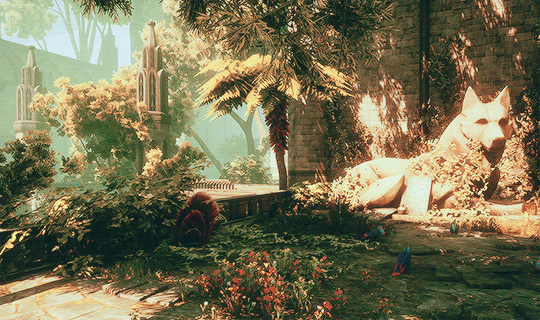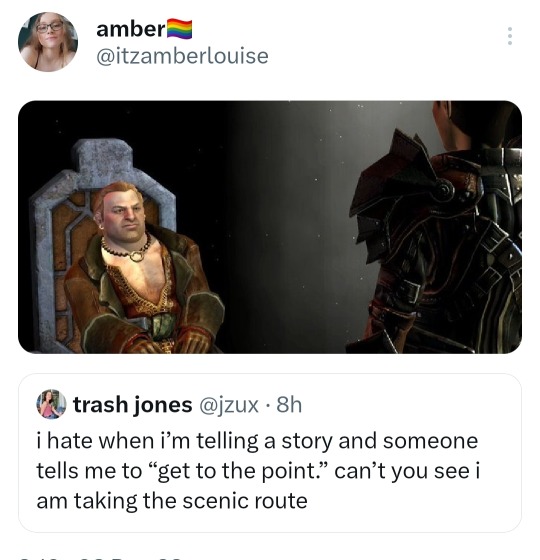Note
Hi there! I was wondering, would you know where I could find anything on like, social taboos involving marriage? I wanted to know if there's anything in the sagas or maybe in archaeology/anthropology that touches on forbidden unions. I know the goddess Lofn is cited as one who grants permission to such people to be together, but I wanted to know if we have anything on what these forbidden unions could look like? Off the top of my head, I imagine feuding families to be a good start, but I can't find much else on the subject. Thank you!
Marriages in Old Norse society were arranged by families (usually between the prospective husband and the father or other male relative of the prospective bride), and more for political and economic reasons than for personal ones. Some people were married specifically because their families were feuding, to bring the feud to an end (often the people involved wanted out but failure to retaliate could have consequences; uniting the families could end the feud in a way that saved face. In Old English a woman who is married into an enemy family for this reason is called freoðu-webbe, 'frith weaver'). Frands Herschend went as far as proposing to see women in Iron Age Scandinavia generally as hostages (in the sense that Freyr and Njörðr are hostages in Ynglinga saga). If the sagas are relatively accurate there does seem to have been an understanding that the family should be arranging things such that the woman is happy with the result, but they weren't legally obligated to.
In this kind of situation, a marriage that's forbidden would be basically any that either side of the family, especially the woman's closest male relatives, opposes. The reasons were probably diverse and personal, and not generally based on widespread taboos. Most of it probably had to do with money and social hierarchy.
Feuding certainly played a role here, or rather we should say relations based in reciprocity, whether positive or negative, did. As I said, marriages were sometimes arranged specifically to bring hostile families into a single family and end the conflict, but if one side thought they had the upper hand and stood to gain by continuing the hostilities then they would surely not permit such a marriage. Marriages might also be arranged out of obligation to more powerful people.
In fact, it might be possible to frame any actual social or legal prohibitions on marriage that did exist as protections for the woman from being married off to someone she didn't want, rather than restrictions on her freedom, because she hardly had any. We can surely consider divorce in a similar way, which was permitted in certain circumstances.
The main restriction that we do have evidence for is marrying someone who is too close a relation. There were probably situations where the financially or politically advantageous thing to do is to get two close cousins married to each other and it may have actually happened, but it's illegal in the laws we have a record of. This may have been less regulated in heathen times.
Of course, there could have been culturally-assumed restrictions that weren't formally prohibited in the law. There's speculation that, while a Nordic man marrying a non-Norse woman was not uncommon, happening the other way around was not generally permitted. This is supposedly reflected in the mythology, where the male gods marry jötunn women but the goddesses do not marry jötunn men. However, there is archaeological evidence from the Vendel period that contradicts this (the book I'm getting this from is over 20 years old, so by now there could be contradictory evidence from the Viking age too, but I'm not sure), so if there was ever such an ethnic taboo it must have either not been universal, or developed later. I'll also remind that there is a contradiction in the mythology as well; Gefjun isn't described as marrying a jötunn but she does have kids with one, which scholars do typically count as a violation of an ethnic taboo, sometimes as grounds to reject the myth itself as "impossible" (Lindow's description).
A lot of this may have varied by class. We mostly know about the land-owning class. It's hard to say whether poorer people would have even less freedom over whom they married because of their dependence on land-owners, or if they had more freedom because there was less social and financial stake in it. It seems likely that their marriages weren't as regulated, but their ability to actually move from place to place was the major limiting factor.
I'm not aware of any sources for it, but I have no trouble believing that illegal or otherwise unsanctioned marriage happened. The thing that kept people in line was inheritance. So if people were in a position where they could turn down their inheritance (whether because they had another source of resources or because their families were so poor their inheritance was negligible anyway), and could have a place to live, they could probably just do what they wanted.
So I think for the most part, if we were to picture Lofn's intercession as historical events, we might picture the site of those intercessions as kind of distant from the actual marriage, like opening opportunities to get by while forgoing one's inheritance, or unexpected changes elsewhere in the social network. Or a simpler example would be a woman successfully convincing her father, brother, or other male representative to let her do what she wanted.
This is a little out of step with Snorri's etymological explanation of Lofn's name as related to 'permission' but as I explained here I think the actual etymological meaning of her name was 'hope'.
Of course a lot of heathens read Lofn's description in the Edda as affirming of marriages that deviate from gender and sexual norms, which the text does in fact leave room for but probably isn't what Snorri had in mind. There's a lot of room for speculation about how this may have been relevant in pre-Christian times but it would be difficult to move it beyond speculation.
Unfortunately quite a lot of this is already pretty speculative, because of how much later our sources concerning marriage are than the time when Lofn may have actually been recognized. Frankly, the same applies to our sources for Lofn, and the time when she may have been recognized. If I'm right about the etymology of her name then I think it's at least a partial vindication of Snorri but that does not necessarily mean that his description of her is entirely reliable.
22 notes
·
View notes
Text
So, who wants to read it then?
Haiku Edda project update that no one asked for: I absolutely hate Hymiskviða more than I hate Hávamal.
On a slightly more positive note, at least I can get started on Lokesenna at the weekend now.
#butchering eddic poems is my passion#lokesenna#north sea poet#haiku edda#havamal#hymiskviða#heathenry#my poetry#lokasenna#loki
25 notes
·
View notes
Note
hello there! today i came across a claim that sort of baffled me. someone said that they believed the historical norse heathens viewed their own myths literally. i was under the impression that the vast majority of sources we have are christian sources, so it seems pretty hard to back that up. is there any actual basis for this claim? thanks in advance for your time!
Sorry for the delay, I've been real busy lately and haven't been home much. Even after making you wait I'm still going to give a copout answer.
I think the most basic actual answer is that it's doubtful that someone has a strong basis to make that claim, and the same would probably go for someone claiming they didn't take things literally. I think we just don't know, and most likely, it was mixed-up bits of both literal and non-literal belief, and which parts were literal and which parts weren't varied from person to person. We have no reason so suppose that there was any compulsion to believe things in any particular way.
About Christians being the interlocutors of a lot of mythology, this is really a whole separate question. On one hand there's the question of whether they took their myths literally, and on the other is entirely different question about whether or not we can know what those myths were. Source criticism in Norse mythology is a pretty complicated topic but the academic consensus is definitely that there are things we can know for sure about Norse myth, and a lot more that we can make arguments for. For instance the myth of Thor fishing for Miðgarðsormr is attested many times, not only by Snorri but by pagan skálds and in art. Myths of the Pagan North by Christopher Abram is a good work about source criticism in Norse mythology.
Though this raises another point, because the myth of Thor fishing is not always the same. Just like how we have a myth of Thor's hammer being made by dwarves, and a reference to a different myth where it came out of the sea. Most likely, medieval Norse people were encountering contradictory information in different performances of myth all the time. So while that leaves room for at least some literal belief, it couldn't be a rigid, all-encompassing systematic treatment of all myth as literal. We have good reason to believe they changed myths on purpose and that it wasn't just memory errors.
I know you're really asking whether this one person has any grounds for their statement, and I've already answered that I don't think they do. But this is an interesting thought so I'm going to keep poking at it. I'm not sure that I'm really prepared to discuss this properly, but my feeling is that this is somehow the wrong question. I don't know how to explain this with reference to myth, so I'm going to make a digression, and hope that you get the vibe of what I'm getting at by analogy. Edward Burnett Tylor (1832–1917) described animism in terms of beliefs, "belief in spiritual beings," i.e. a belief that everything (or at least many things) has a soul or spirit. But this is entirely contradicted by later anthropology. Here's an except from Pantheologies by Mary Jane Rubenstein, p. 93:
their animacy is not a matter of belief but rather of relation; to affirm that this tree, that river, or the-bear-looking-at-me is a person is to affirm its capacity to interact with me—and mine with it. As Tim Ingold phrases the matter, “we are dealing here not with a way of believing about the world, but with a condition of living in it.”
In other words, "belief" doesn't even really play into it, whether or not you "believe" in the bear staring you down is nonsensical, and if you can be in relation with a tree then the same goes for that relationality; "believing" in it is totally irrelevant or at least secondary. Myths are of course very different and we can't do a direct comparison here, but I have a feeling that the discussion of literal versus nonliteral would be just as secondary to whatever kind of value the myths had.
One last thing I want to point out is that they obviously had the capacity to interpret things through allegory and metaphor because they did that frequently. This is most obvious in dream interpretations in the sagas. Those dreams usually convey true, prophetic information, but it has to be interpreted by wise people who are skilled at symbolic interpretation. I they ever did this with myths, I'm not aware of any trace they left of that, but we can at least be sure that there was nothing about the medieval Norse mind that confined it to literalism.
For multiple reasons this is not an actual answer but it's basically obligatory to mention that some sagas, especially legendary or chivalric sagas, were referred to in Old Norse as lygisögur, literally 'lie-sagas' (though not pejoratively and probably best translated just as 'fictional sagas'). We know this mostly because Sverrir Sigurðsson was a big fan of lygisögur. But this comes from way too late a date to be useful for your question.
40 notes
·
View notes
Text
Broke: Blaming Todd Howard when something goes wrong in a Bethesda game
Woke: Blaming Todd Howard when something goes wrong in ANY video game
70K notes
·
View notes
Text
IT'S FINISHED AT LAST
Now I can lock it away in my vault with all my other unpublished poems and never look at another fucking haiku again
Or maybe post it to my Ko-Fi page
Whichever is easiest
Haiku Edda project update that no one asked for: I absolutely hate Hymiskviða more than I hate Hávamal.
On a slightly more positive note, at least I can get started on Lokesenna at the weekend now.
#butchering eddic poems is my passion#lokesenna#north sea poet#haiku edda#havamal#hymiskviða#heathenry#my poetry#lokasenna#loki
25 notes
·
View notes
Text
You know those "Modern god pantheon" stories that like to revolve around the, "Our believers have waned and so has our power," thing?
Thinking about that today, and. Something like 7% of all humans who have ever lived are alive today. The world's population today absolutely absurdly higher than anything those ancient populations possibly could have conceived it being.
And thanks to technology and communication and the "shrinking" of the world, more people have probably heard the names of many of those gods then ever worshiped them before. And many of those gods actually do have followers and worshippers today. Yes, people do worship and believe in Norse gods and Greek gods and etc.
I can't fathom how many smaller gods must have been forgotten about entirely. But the fact is that we remember so many of them.
What I'm saying is, modern gods where they have more power than they could have ever fathomed because their believers are just statistically so much higher and so many more people know their name.
292 notes
·
View notes
Text
Aaaaaand only 15 stanzas left to cover. I'll be so glad when this is finished.
Haiku Edda project update that no one asked for: I absolutely hate Hymiskviða more than I hate Hávamal.
On a slightly more positive note, at least I can get started on Lokesenna at the weekend now.
#butchering eddic poems is my passion#lokesenna#north sea poet#haiku edda#havamal#hymiskviða#heathenry#my poetry#lokasenna
25 notes
·
View notes
Text
It's better to ask what I haven't done *this* time 😈😂
Communists and anarchists will spend all day talking about abstract concepts and structures like capitalism and the state, but willfully ignore the very real, tangible curse placed upon me by the foul necromancer
21K notes
·
View notes
Text
Managed to progress a bit further and now I'm stuck again.
Beginning to wonder why I ever thought this entire project was a good idea.
Haiku Edda project update that no one asked for: I absolutely hate Hymiskviða more than I hate Hávamal.
On a slightly more positive note, at least I can get started on Lokesenna at the weekend now.
#butchering eddic poems is my passion#lokesenna#north sea poet#haiku edda#havamal#hymiskviða#heathenry#my poetry#lokasenna
25 notes
·
View notes
Text
Communists and anarchists will spend all day talking about abstract concepts and structures like capitalism and the state, but willfully ignore the very real, tangible curse placed upon me by the foul necromancer
21K notes
·
View notes
Text
Well, I started it. And now I'm stuck. I'm not sure how to go about writing the accusations of ergi between Odin and Loki. It doesn't help that the two translations of the poem I'm looking at also use different meanings ("unmanly" in Bellows' translation, "perverted/perverse" in the Pettit translation).
Haiku Edda project update that no one asked for: I absolutely hate Hymiskviða more than I hate Hávamal.
On a slightly more positive note, at least I can get started on Lokesenna at the weekend now.
#butchering eddic poems is my passion#lokesenna#north sea poet#haiku edda#havamal#hymiskviða#heathenry#my poetry#lokasenna
25 notes
·
View notes
Text
Thank you! I'm now onto Lokasenna (or Loki's Haiku Duel as I'm titling it)
So, I started writing "Vafþrúðnismál but it's haikus" yesterday morning.
I'm now 80 haikus deep, and only just covered about half of the original poem (based on the Henry Bellows translation).
At least it's not going to drive me insane like Hávamal but it's haikus did.
45 notes
·
View notes
Text
I lied. I'm not starting the haikuification of Lokesenna at the weekend. I'm starting it tonight before I go to work. And it's gonna be terrible, just like the other 7 haikuifications I did.
Haiku Edda project update that no one asked for: I absolutely hate Hymiskviða more than I hate Hávamal.
On a slightly more positive note, at least I can get started on Lokesenna at the weekend now.
#butchering eddic poems is my passion#lokesenna#north sea poet#haiku edda#havamal#hymiskviða#heathenry#my poetry
25 notes
·
View notes






